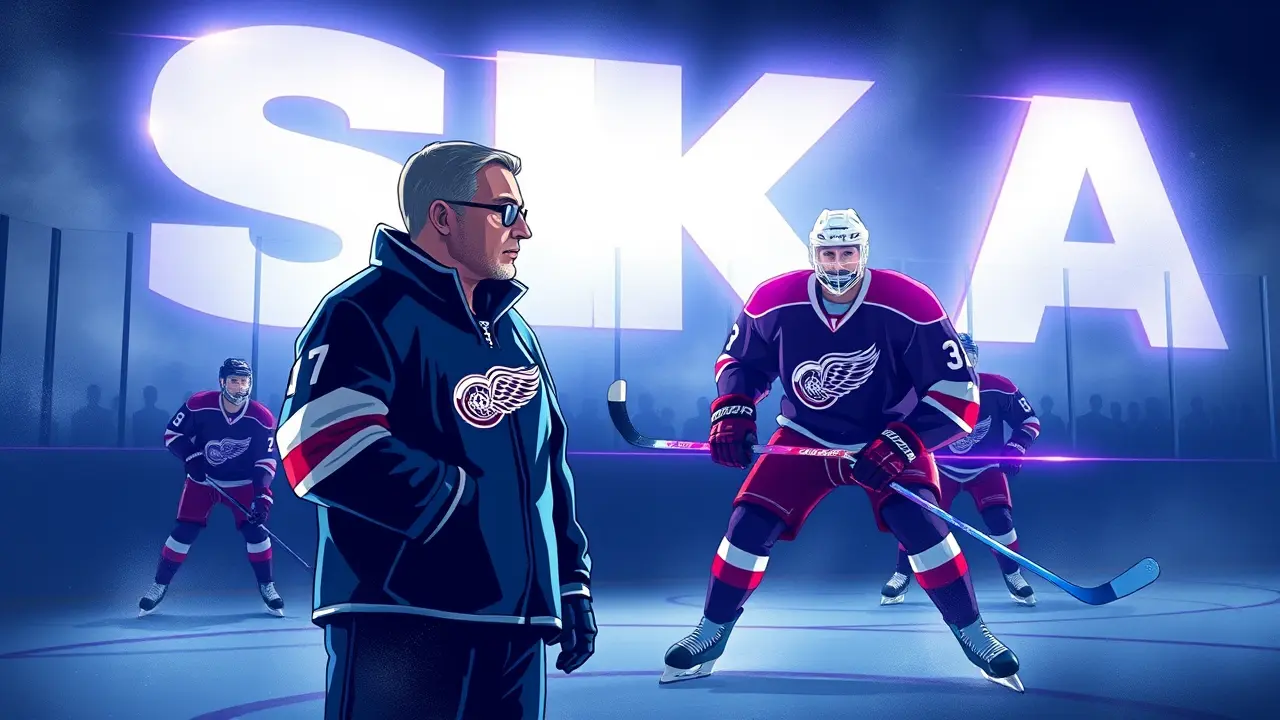Larionov on SKA's 5th straight loss: Team forming, lacks confidence.
The once-dominant SKA Petersburg suffered their fifth consecutive defeat on Wednesday, a painful 1-2 overtime loss to Avtomobilist that has sent shockwaves through the Kontinental Hockey League and left head coach Igor Larionov searching for answers in the foundational elements of team chemistry rather than in his storied past. While the natural inclination for a legend like Larionov—a man whose playing career with the Detroit Red Wings‘ famed ‘Russian Five‘ redefined offensive hockey—is to draw upon tales of that Motor City dynasty, the Professor, as he‘s known, was quick to dismiss such nostalgic parallels, insisting bluntly, ‘Here and now, it‘s not about Detroit‘s history.‘ Instead, he framed this painful stretch not as a collapse but as a protracted and arduous formation process, a team still discovering its fundamental identity. ‘We are talking about a team that is only being formed,‘ Larionov stated with a candor that belied the mounting pressure from fans and pundits alike.‘It is being formed with difficulty, I‘ll be honest. But when you see the effort, when you see the work ethic, you can only remain patient.‘ This patience is being tested by a stark statistical reality: despite generating a multitude of high-danger scoring chances, a chronic lack of finish has plagued the squad, a symptom Larionov diagnoses as a crippling deficit of confidence. ‘We want to win and we will win,‘ he asserted, the conviction in his voice a stark contrast to the scoreboard.‘But it is very important that first, the confidence that we are lacking arrives. This is the main reason why we score very few goals, although we create a mass of moments.‘ This analytical breakdown is classic Larionov, a man who sees the game not just in goals and saves but in processes and psychological thresholds. The current SKA roster, a blend of seasoned KHL veterans and promising young talent, appears caught in a vicious cycle where missed opportunities breed hesitancy, which in turn leads to more squandered chances.It‘s a malaise familiar to any team in a rebuild, but the expectations in Petersburg are never those of a typical franchise. This is a club with a championship-or-bust mentality, a budget to match, and a fanbase that remembers the glory days of Gusev and Datsyuk.The five-game skid has seen them plummet to 7th in the Western Conference, a precarious position that ignites speculation about Larionov‘s job security, a topic he has met with a stoic, almost philosophical resolve. The broader context here is a league-wide shift in parity, where traditionally powerful clubs like SKA can no longer simply outspend their opponents to victory.Teams like Avtomobilist have built cohesive, defensively structured units that can stifle the individual brilliance upon which SKA has often relied. For Larionov‘s vision—a possession-heavy, creative system reminiscent of his Detroit heyday—to truly take root, it requires more than just tactical instruction; it demands an almost telepathic level of trust and instinct among the players, a collective belief that they can execute under pressure.This is the intangible ‘confidence‘ he speaks of, the final ingredient that transforms a collection of skilled individuals into a formidable team. Historical precedents across all sports are littered with talented rosters that failed to coalesce, their potential evaporating in a cloud of frustration.The challenge for ‘The Professor‘ is to now become a psychologist, a motivator, and an architect of culture, all while the losses mount. He must find a way to inject that belief, to get one greasy goal that sparks a cascade, to have his leaders on the ice embody the calm certainty he projects off it.The coming weeks will be a critical test of his coaching mettle, determining whether this formative period is merely the painful birth pangs of a future contender or the beginning of a more profound and lasting decline for a KHL giant. The work ethic is there, the system is in place, but as Larionov so astutely identified, the missing piece is the unshakable, championship-level confidence that separates good teams from great ones.
HO
HockeyHype4213 hours ago
me reading this trying to figure out what's going on with SKA 😬 they create all these chances but can't score, it's so frustrating to watch smh
0
© 2025 Outpoll Service LTD. All rights reserved.
